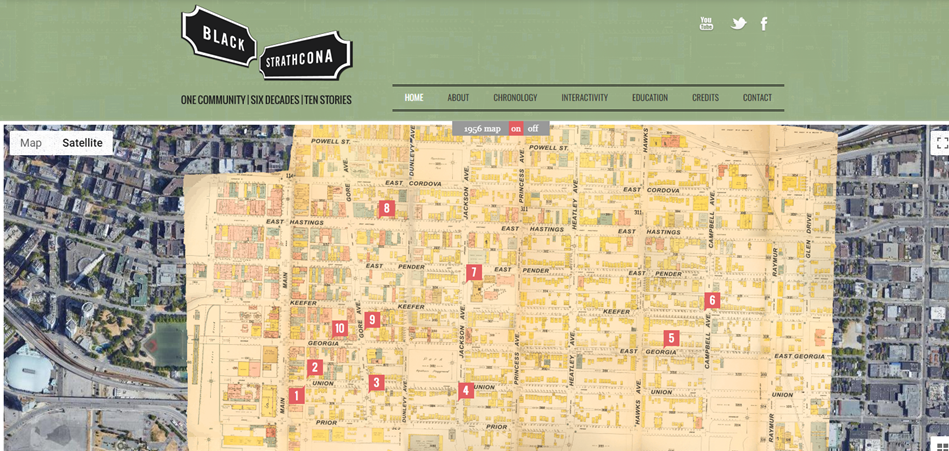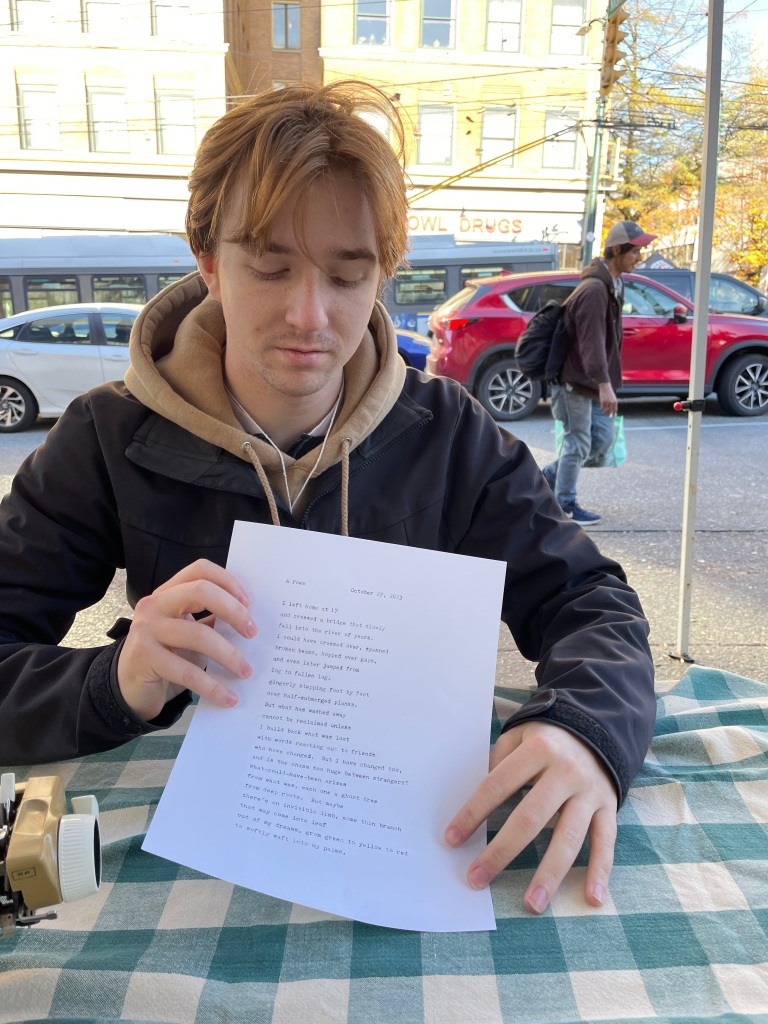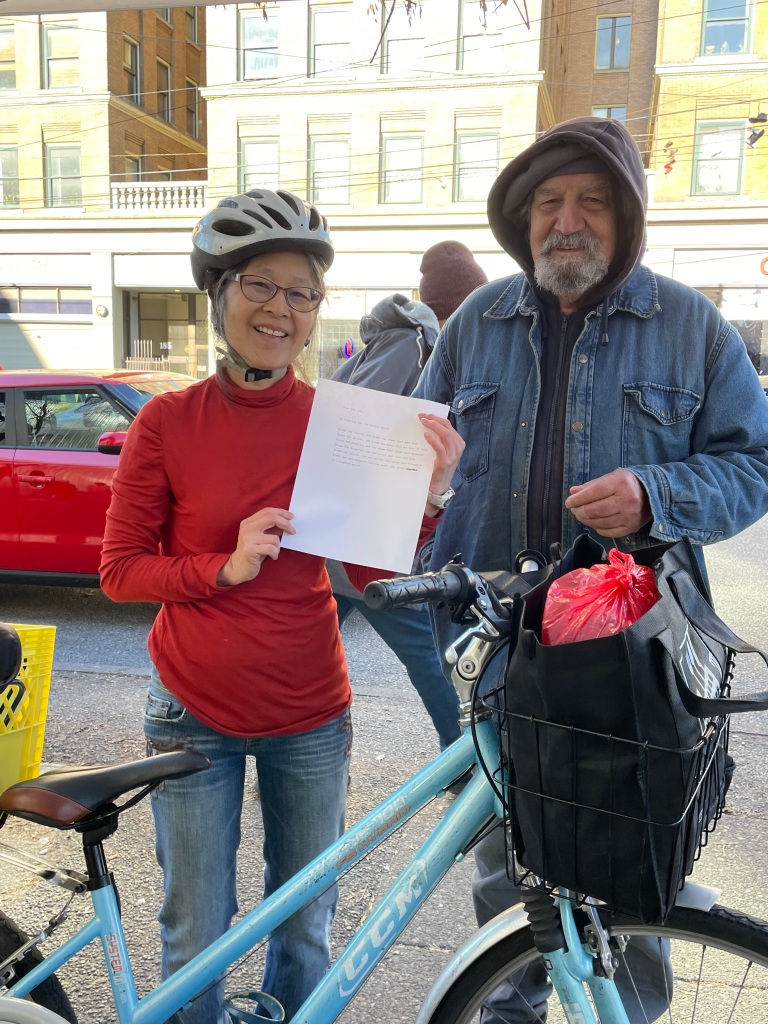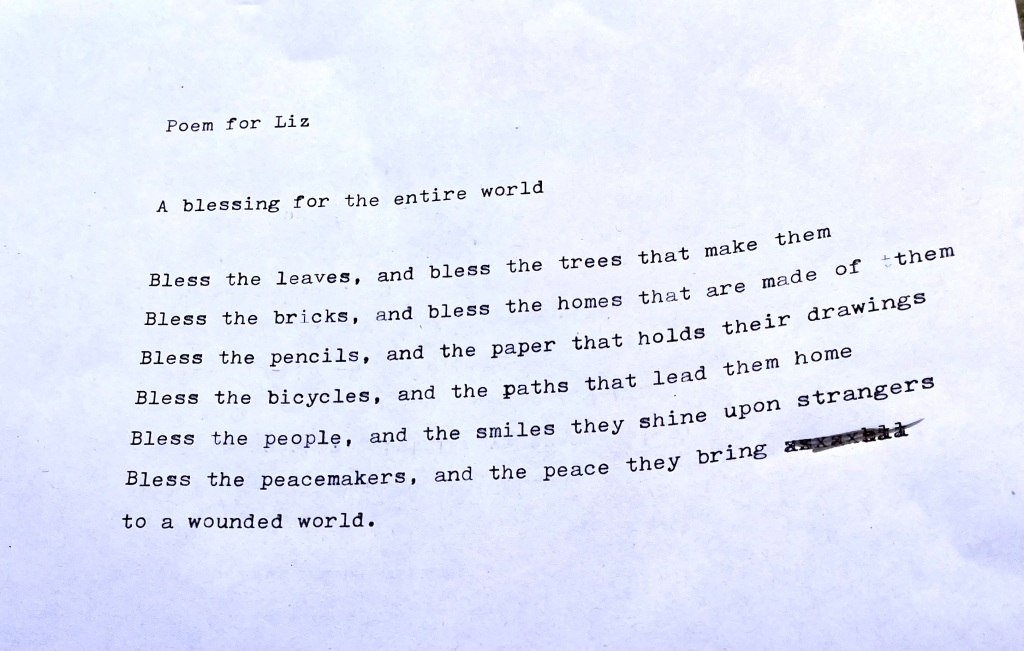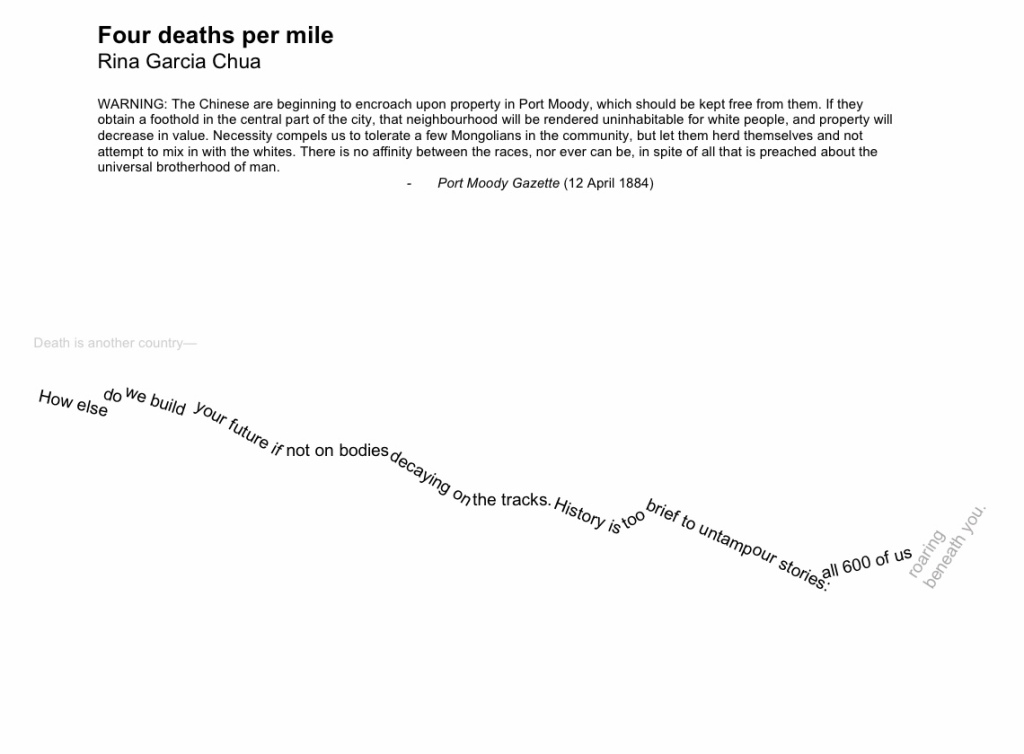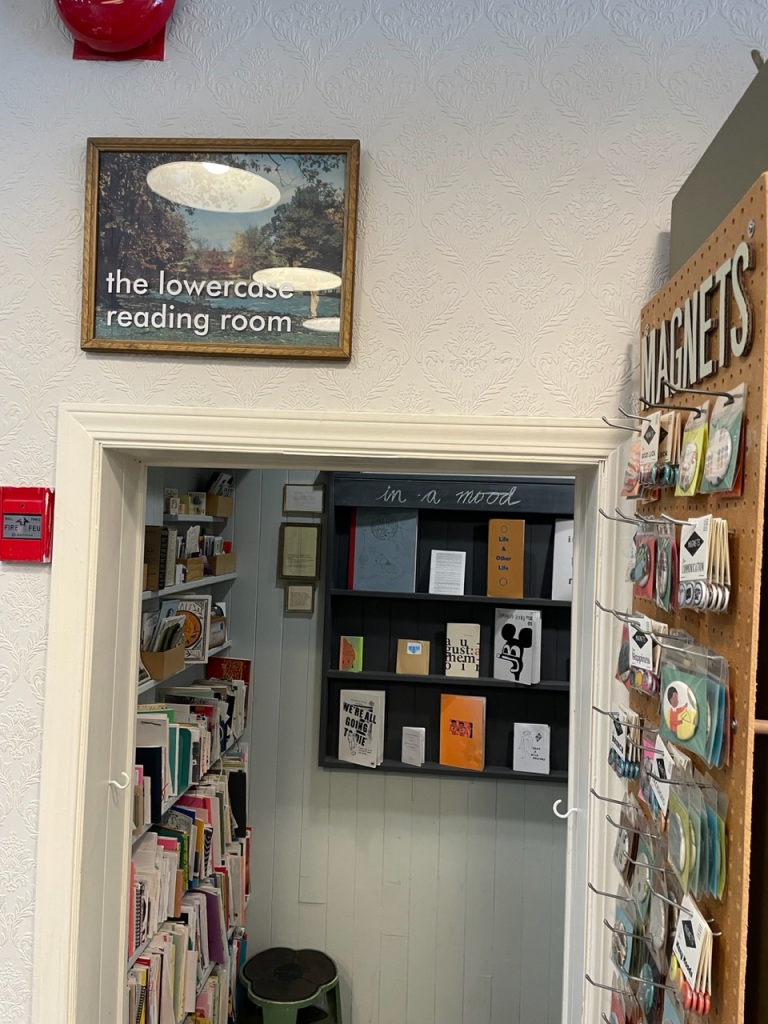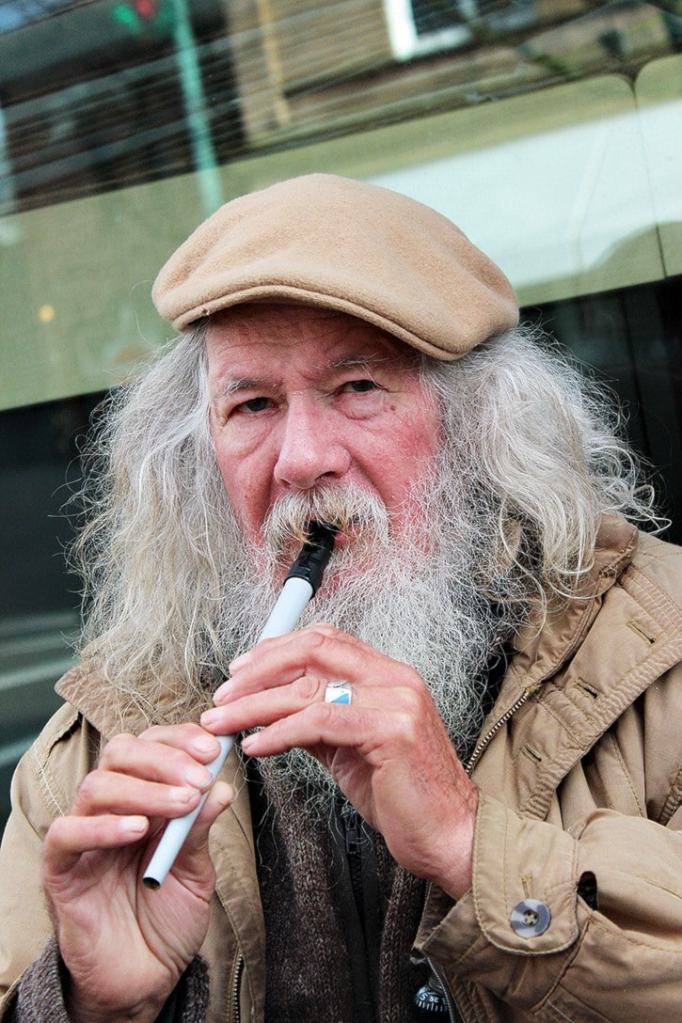

At last Sunday’s Places That Matter Community Fair at Heritage Hall that is held annually by the Vancouver Heritage Foundation, I came across haiku written by grade five student, Felix Chong-Walden for his exhibit about the Asahi baseball team, a local Japanese Canadian team formed in 1914 which was voted Vancouver’s most popular baseball team in 1926 and which won several Pacific Northwest Championships in the 1930s prior to the internment of 22,000 Japanese Canadians by the Canadian government during World War II. The team was split up into different camps, but players taught baseball to their fellow internees to lift their spirits. I also loved the baseball cards Felix made for each of the team members.
Tonight in the corridors of Le Crocodile restaurant, I came across a framed Ode to Vancouver written and signed by former French Consul-General Jean-Yves Defay. The 30 year career diplomat apparently read the poem to Vancouver City Council in 2004. I love the poem’s fabulous wordplay, employing the “ver” of “ Vancouver” to create delightful combinations such as “Vancouversify”, “Vancouvertical”, “Vancouvertiginous”, “Vancouverdant” and “Vancouverversailles” among others.

(You can find an English translation of the poem by Lissa Cowan in a scanned version of The Province article here.)

I often look out for Poetry in Transit cards, usually placed near the front of the bus. Earlier today I came across Ian Thomas’ lovely poem about the quality of light in BC’s Great Bear Rainforest. An evocative sliver of nature in the middle of the city!

I heard more Vancouver-themed poems last Wednesday from award-winning local poet Onjana Yawnghwe who read poems from her handmade chapbook, Vancouver City Map, as well as from her upcoming collection, at the terrific Lunch Poems reading series held at SFU Harbour Centre. Ottawa poet Sneha Madhaven-Reese read moving poems about her father and their family’s adjustment to the west after emigrating from India.
Poetry can be found all over the city in unexpected places and at unexpected times!


